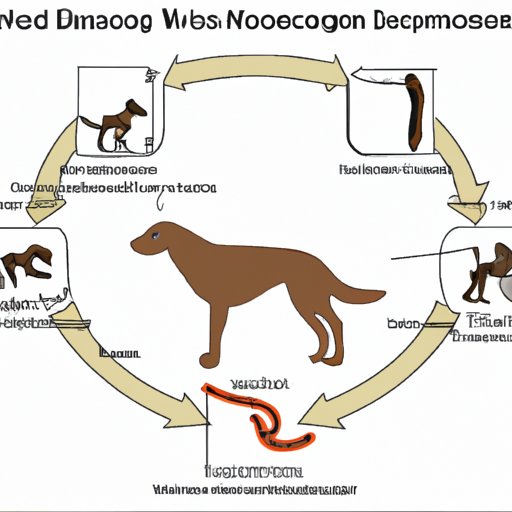“`markdown
What is Hookworms in Dogs
As a dedicated caregiver, you are always on the lookout for signs that could point to your furry friend’s discomfort or ill-health. Today, let’s delve into a common but often overlooked issue – hookworms in dogs.
H2: Understanding Hookworms
Hookworms are tiny, parasitic worms that can infest your dog’s intestines. These parasites are known for their hook-like mouthparts, which they use to latch onto the intestinal lining and feed on your dog’s blood.
There are two primary species of hookworms that affect dogs: Ancylostoma caninum and Uncinaria stenocephala. Both can cause serious health problems if left untreated. However, with early detection and proper care, you can protect your pet from these harmful parasites.
H2: How Dogs Get Infected
Understanding how your pet gets infected can help you prevent hookworm infestation. Here are the most common transmission methods:
- Larval ingestion: Dogs can ingest hookworm larvae present in contaminated soil or water.
- Skin penetration: Larvae can penetrate the skin, usually through the paws or belly.
- Nursing: Puppies can contract hookworms from an infected mother’s milk.
It’s important to note that hookworms can also affect humans, so maintaining good hygiene and preventing contamination is crucial for both you and your pet’s health.
H2: Signs and Symptoms
It’s important to recognize the signs of hookworms in dogs. Here are some symptoms to watch out for:
- Loss of appetite
- Diarrhea
- Weight loss
- Anemia
- Pale gums
- General weakness
If you notice any of these signs, it’s essential to seek veterinary care immediately.
H2: Treatment and Prevention
Effective treatment of hookworms usually involves deworming medication prescribed by a vet. You may need to administer multiple doses over a period of time to completely eradicate the parasites.
Preventing hookworm infection involves regular fecal examinations and deworming as recommended by your vet.
| Prevention Method | Description |
|---|---|
| Regular vet check-ups | Frequent check-ups can help detect and treat infestations early. |
| Good hygiene | Always clean up after your dog to prevent contamination of the environment. |
| Proper nutrition | A balanced diet can help boost your dog’s immune system and make them less susceptible to parasitic infections. |
H2: Frequently Asked Questions
-
Can hookworms be fatal to dogs?
Yes, if left untreated, severe hookworm infestation can lead to life-threatening anemia. -
Can I get hookworms from my dog?
Yes, humans can contract hookworms through contact with contaminated soil or feces. -
How often should I deworm my dog?
This depends on your dog’s lifestyle and risk factors. Consult with your vet to establish a deworming schedule.
Remember, as a caregiver, your vigilance is paramount in ensuring the health and happiness of your furry friend. Keep an eye out for symptoms, maintain a clean environment, and regularly consult with your vet. Together, we can ensure a hookworm-free life for our beloved pets.
“`



